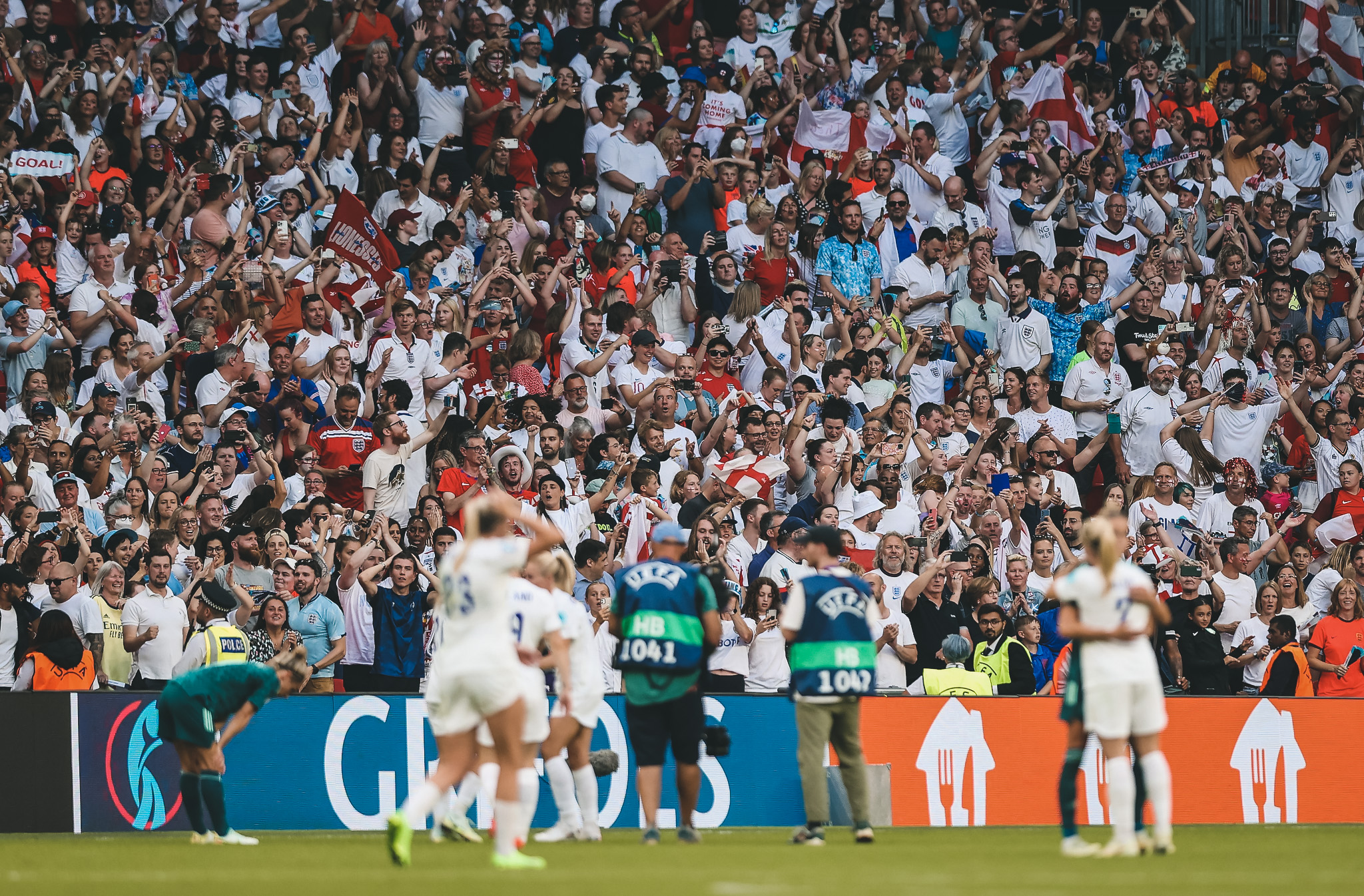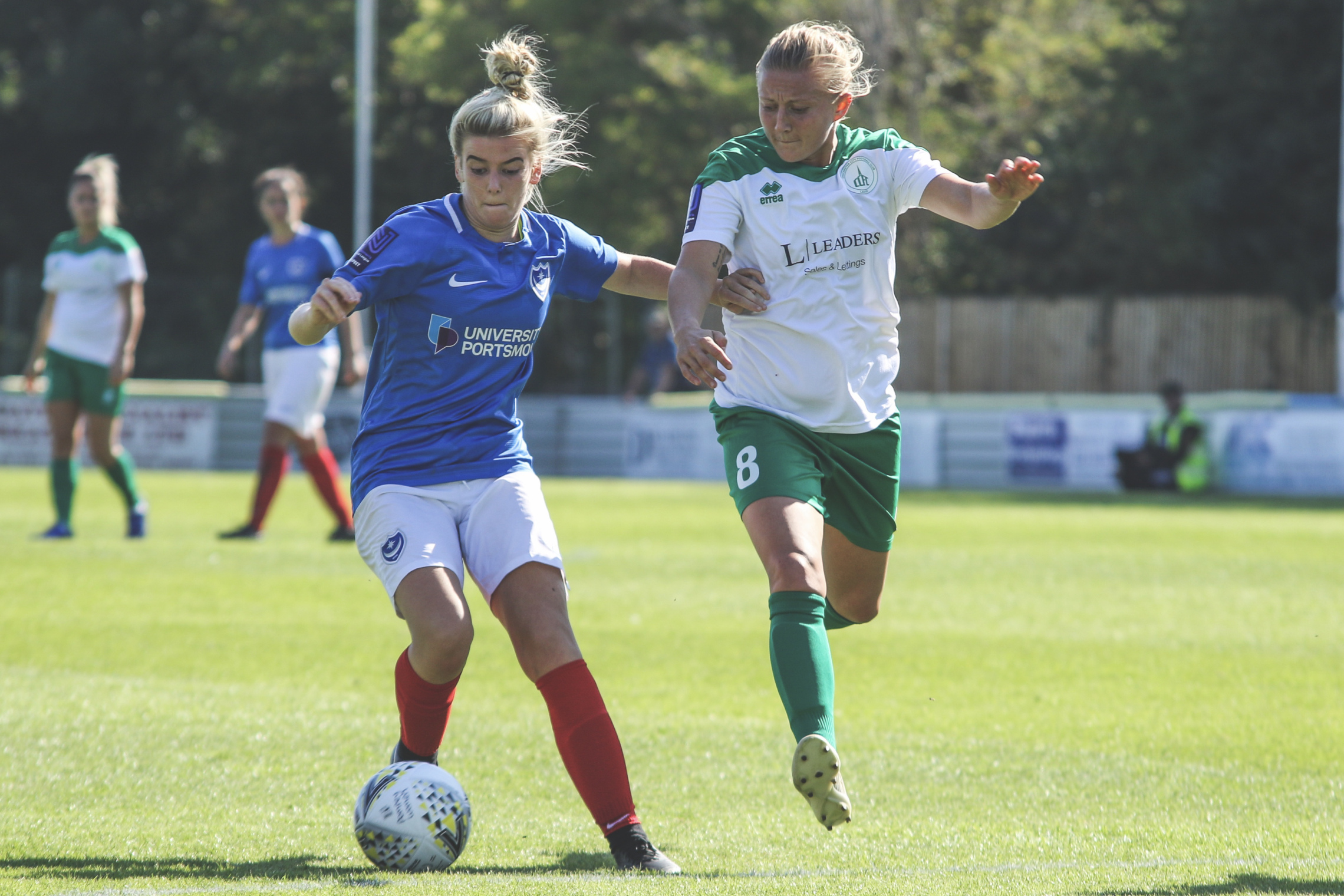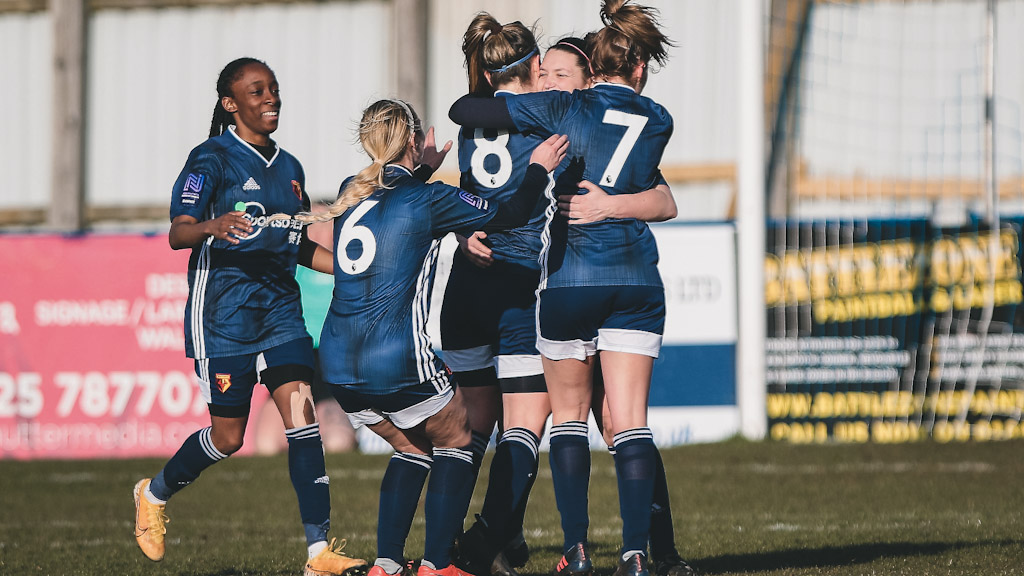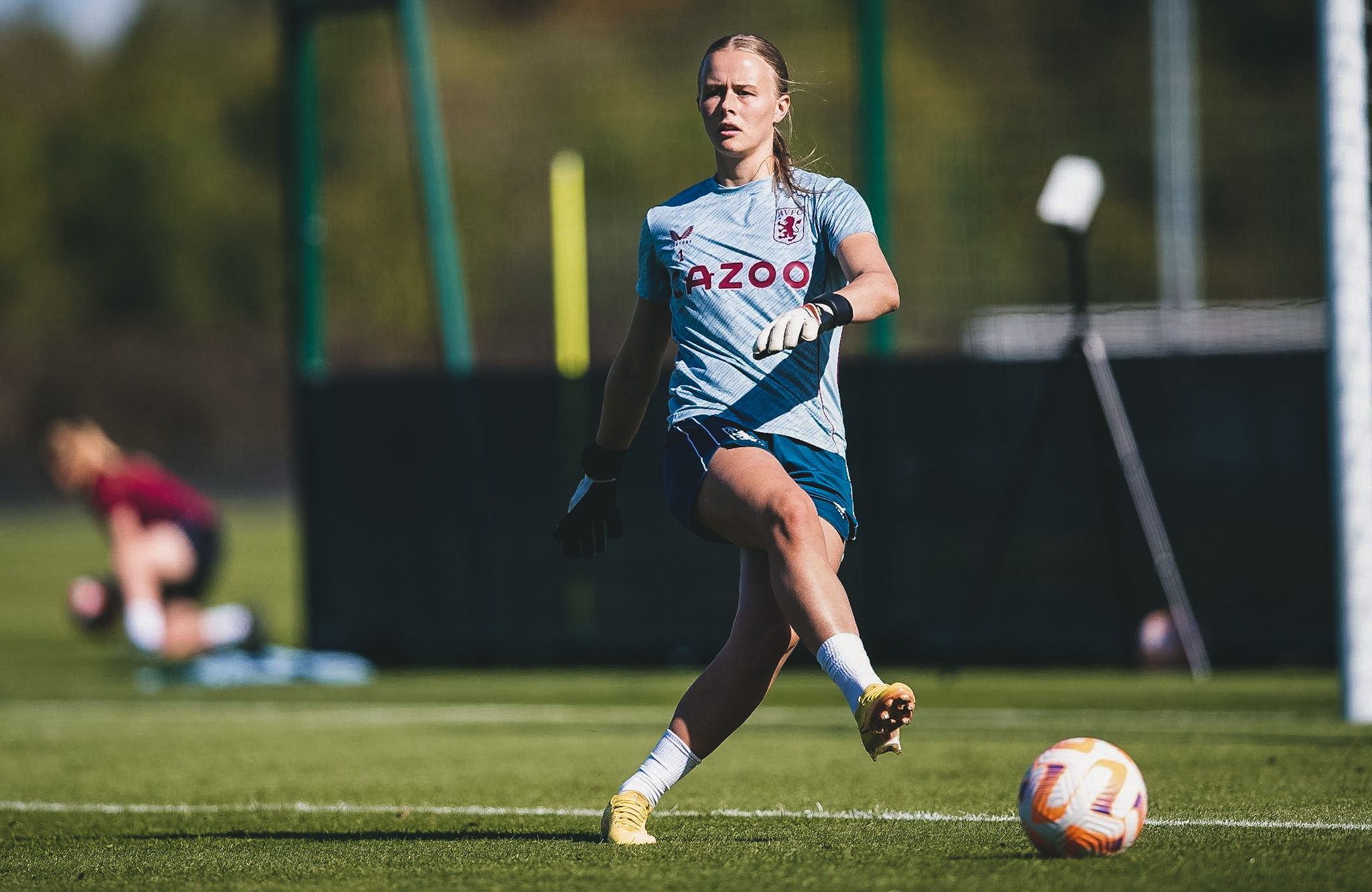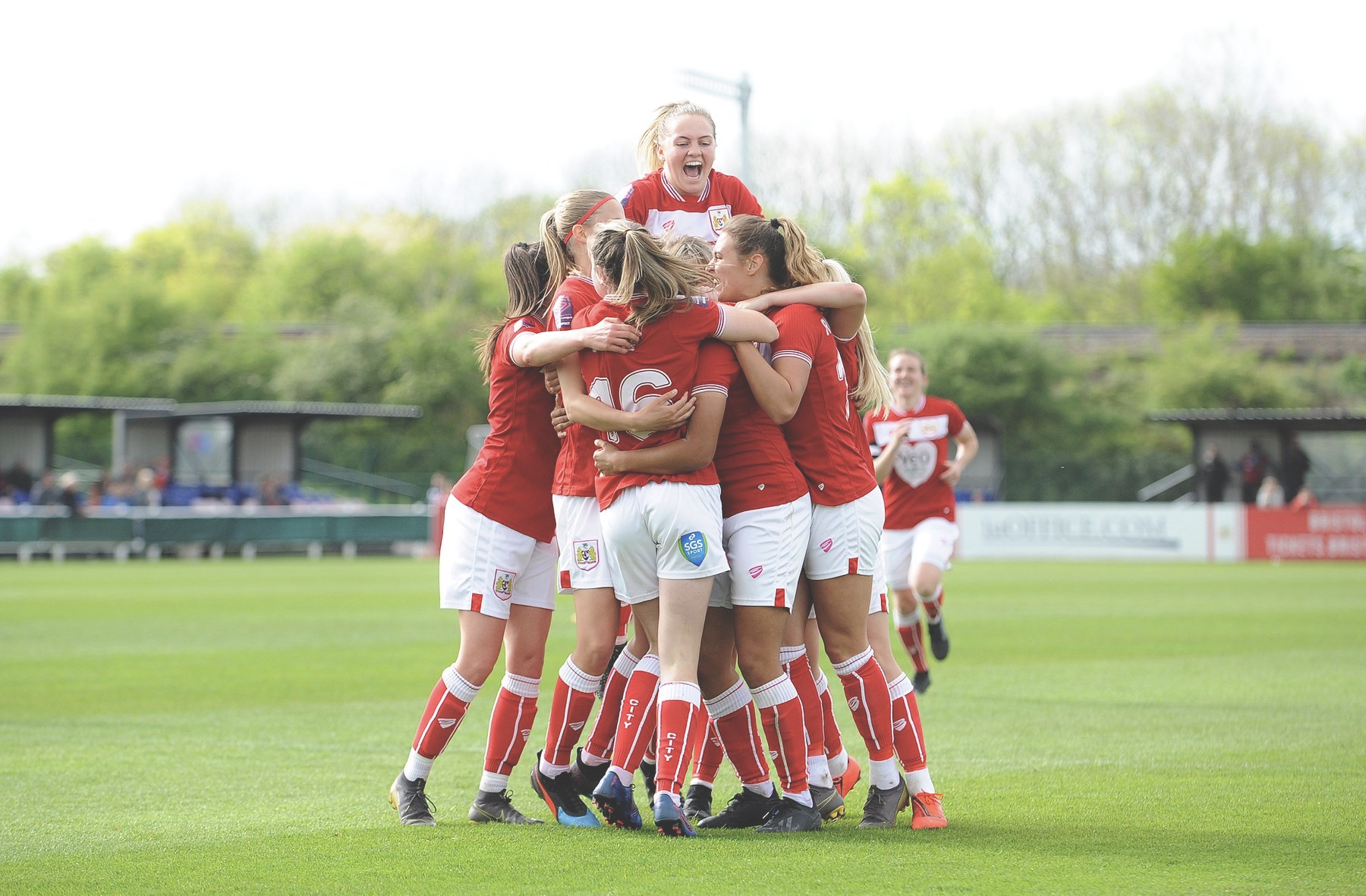England are European Champions. With their 2-1 victory over Germany on July 31st, the Lionesses won their first major trophy and only the second ever won by an English eleven, ever. Both were won in the same place at the same opponent. In this piece, Paul Wheeler tells, in his own way, what it was like to experience history as one of the 87,192 people inside Wembley on a day that changed the English football world forever.
“Is it unreal cause I don’t know if it really happened
Such a dream
We sing better together than alone”
Blood Command ‘Afraid Of Water’.
It is 11:30pm on Sunday, July 31st, 2022. Platform 14 of Euston Station, a few tracks down from the one I stepped onto 12 hours ago to enter London, is quiet and empty outside, and the carriages of the Caledonian Sleeper sliding by in the darkness as our train hauls itself into motion and begins its lonely way north. Around me are others, many wearing England shirts of every era and design. The carriage has that quiet blanket of silence common on late-night transport – the kind shared by people thrown together in a metal tube, just trying to get home. For a few minutes there is hardly a word said. And then someone says “the arch is red and white now”.
And so I, and many others press our faces to the window as one, and out in the darkness, sliding by in the distance over the endless roofs of London, there it is, again. A thin ribbon of red and white in the sky, like a beacon. The Wembley Arch, shining its message into the sky.
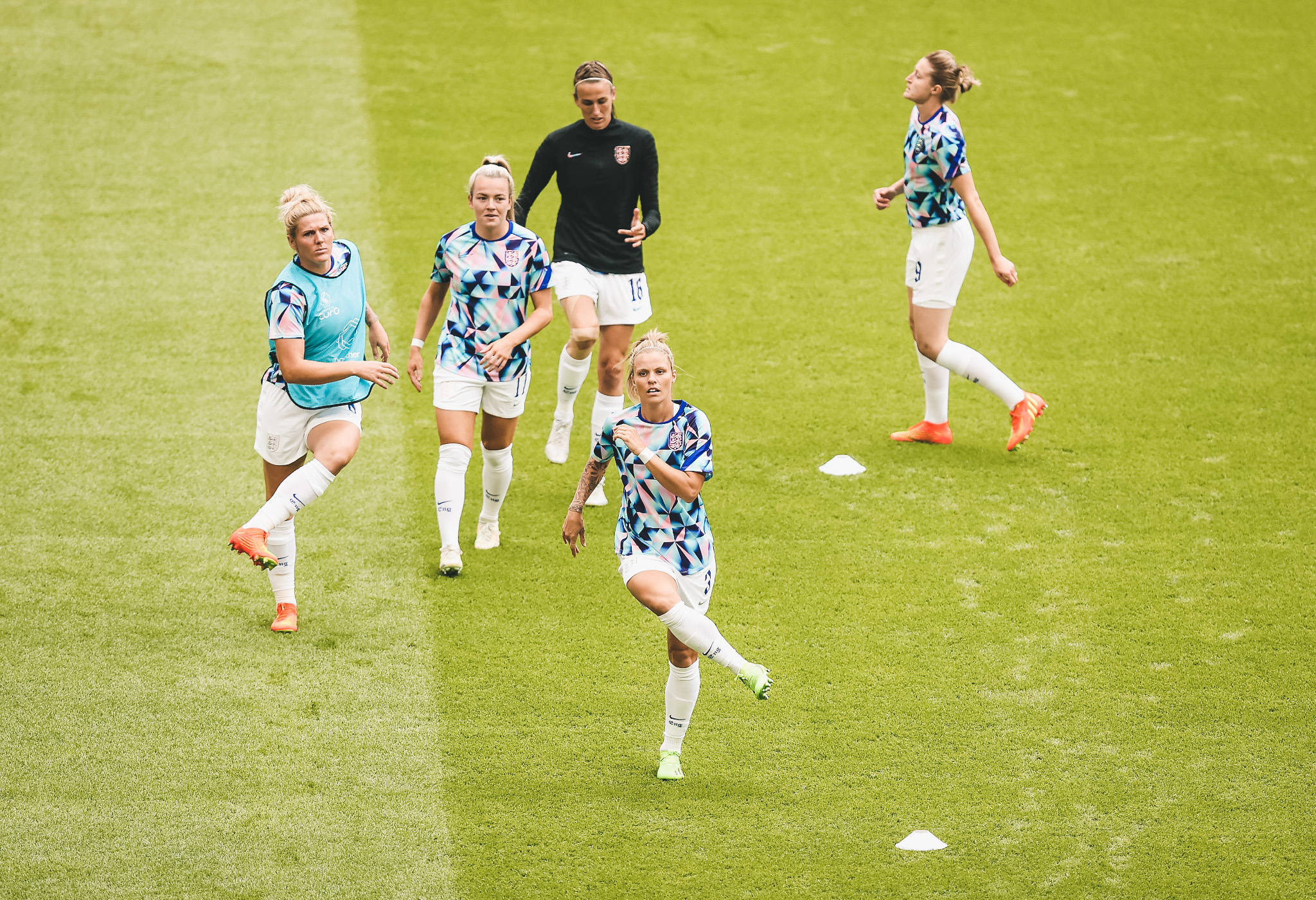
England – our England – the joyful, swashbuckling, dancing, dynamic England of Beth Mead, Millie Bright, Mary Earps, Lucy Bronze, Ella Toone, Lessi Russo, Chloe Kelly…our Lionesses, are European Champions.
My story of this day is both unique, and shared with thousands of others. It is a story of hope, anticipation, fear, joy, tears, laughter, and ecstasy. It is a story of raucous Sweet Caroline choruses on Tube trains, and silent praying under an unforgiving sky. It is a story of firsts both personal and national. One of hope lost, and regained. It’s a story of the world changing. It is the story of what it was like to welcome football home.
CHAPTER 1: ANTICIPATION
The first thing you notice at Euston is the sheer number of shirts. Old ones, new ones. Club shirts, England shirts with every possible player name on the back. Red, white, blue. Everyone carries a flag. Under a blue July sky, my partner and I are sitting outside Euston when a train from the North disgorges its cargo.
A constant stream of walking flags leaves the main entrance and heads for Euston Square and the Metropolitan Line, carrying probably the most direct route for many arriving from the North to Wembley. As my partner and I walk along Euston Road we pass a family, with a girl, maybe three years old, lying on the pavement out of the way colouring as her slightly older sibling watches over her. She is wearing an England shirt many years older than she is, likely one of her parents. Perhaps they are waiting for friends to join them. But I find myself thinking for the first time that there are likely few parents who would be happy bringing their young child, with a colouring book, to an England men’s game.
The Metropolitan Line train hisses into the station and, somehow it is relatively empty this early. We step on and I mumble the stops under my breath.
“Great Portland Street. Baker Street. Finchley Road.”
The stops pass as the Tube bounces and skips along, flying out towards the home of English football. We overtake several Jubilee Line trains running parallel, much fuller than ours with English and, occasionally, German fans, as they clatter through their slower, more stop-filled way. We are the hare to their tortoise but all the trains this way today will carry the same hopes, the same dreams. Their passengers will do as we do, disembark in the same place we do, and flow up the stairs in a tide of hopeful humanity.
Then we pull into Wembley Park, and minding the gap and standing clear of the closing doors, we get off the train and climb our own Wembley Steps. It is three hours before kickoff, and we are about to arrive.
CHAPTER 2: HELLO, WEMBLEY!
Whoever designed the exit to Wembley Park Station has a sense of the dramatic. The entrance to the station stands high above Olympic Way, and coming off the Tube you have no time to prepare yourself, or adjust for what’s coming.
You exit the platforms and can see the crowds almost of their own will form a horizontal line in front of you, pause and then disappear seemingly down into the ground. This, of course, as regular visitors will know, is merely them going down the steps into the customisable, ever-changing LED-screened underpass that takes you on to Wembley Way, which today is screening a massive picture of Leah Williamson and Alex Popp, game faces on, and “WOMEN’S EUROS 2022 FINAL – ENGLAND/GERMANY” as traffic flows unnoticed behind it. Just in case you’ve forgotten. But that is not where your eye goes. That is barely noticed at first, in fact. Because this is your view.
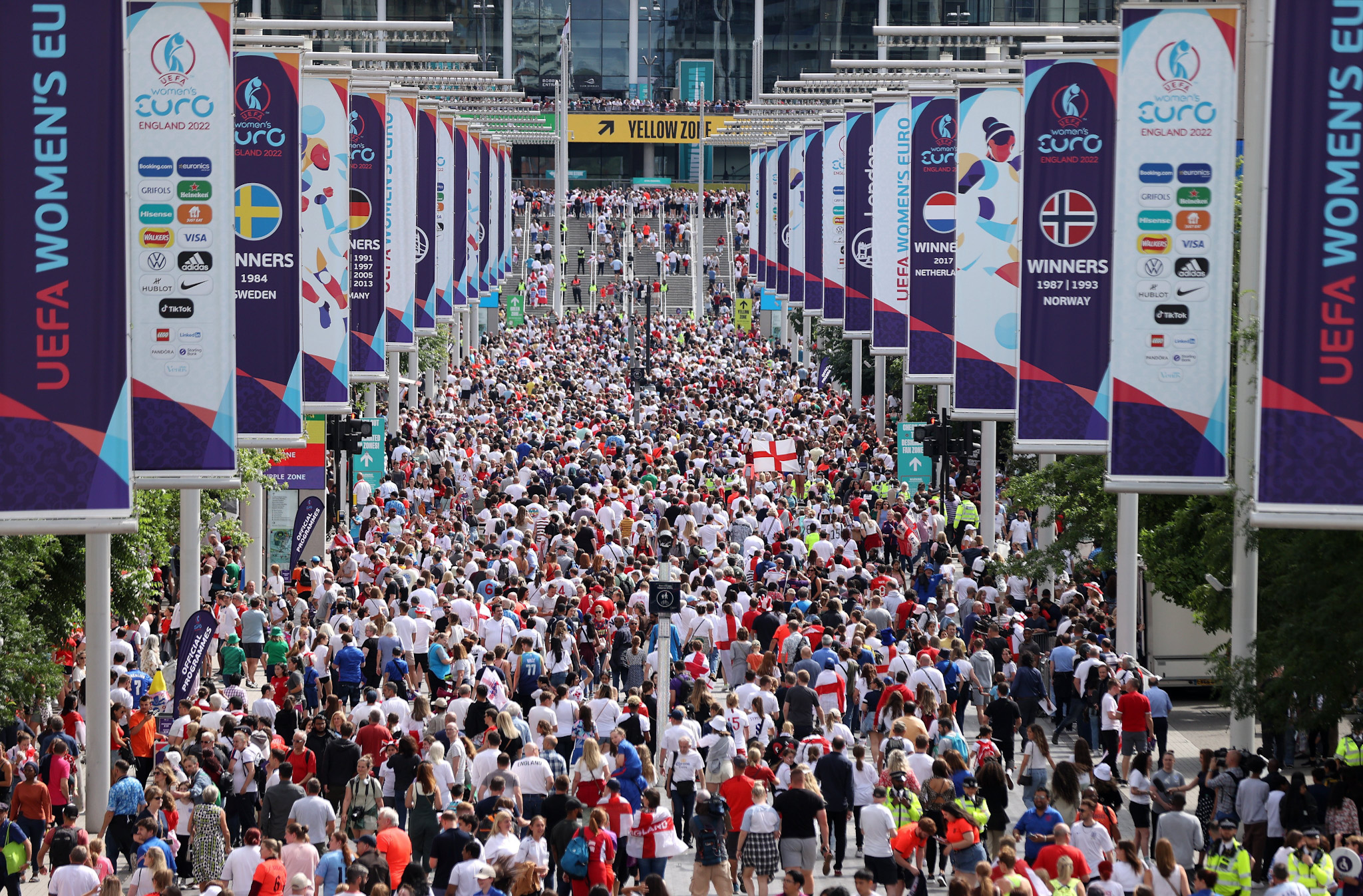
Nothing prepares you for the first sight of Wembley Way on a matchday. In the background, the arch rises above a Wembley seemingly hunkered down like a primordial spaceship, hiding between the trees and the apartment blocks, images flickering across its facade. The old Wembley had the visual reference point of the towers – this has the arch. But from this far away it is not a welcoming presence. It is meant to awe and inspire. It is like approaching a sporting cathedral. But that is not what draws your eye, either.
What draws your eye is Wembley Way itself, stretching dead straight in front of you like a causeway of dreams to the stadium. One that today, under the glower of the stadium and the angry clouds behind it, is teeming with people, ant-like in their viewpoint. It is the first time you realise the scale of what you’re about to watch. That mass of humanity is all going one way, at the same time. And you are part of it.
It is then that you realise just how many 87,000 people is.
And then, you plunge down into that mass. You make your way slowly, painstakingly towards the stadium. Perhaps you try and meet friends, share conversations, take pictures. You are surrounded by languages, colours, laughter, optimism, and the odd weird costume. But always, always, you’re drawn towards Wembley Stadium with the irresistible pull of a black hole pulling in light. Maybe you walk up the steps on the other side to pay homage to Bobby Moore, maybe you don’t. Maybe you walk around the stadium. But eventually, you find your entrance. You pass through the turnstiles. In front of you is a small, framed view of a section of red seats, maybe a view of a small section of shockingly green turf. You buy food, and drink. You psyche yourself up, perhaps.
Then you walk into that small, framed, open door of a view like a curious child into a wardrobe might have done, and like them, you go through a portal, and suddenly the world opens up, and you see not Aslan in Narnia but red seats climbing opposite you in three tiers, steeply, and behind you they do the same, and the arch splits the heavens when you look up, and in front of you is the pitch…the pitch where immortals run, where the spirits of Bobby Moore, Jimmy Greaves and Stanley Matthews, Lily Parr, Sylvia Gore and Bella Reay still play forever in front of whispering crowds of ghosts of fans like you and me when the stadium is dark, quiet and empty, the pitch where the Lionesses will hunt today. The pitch that carries the memory of millions of dreams made and shattered.
And you say, like the great and the good and thousands before you, the immortal words…”hello, Wembley!”
CHAPTER 3: NINETY MINUTES OF EXQUISITE HELL
I am a mess. It feels like I have not breathed for several minutes or blinked for even longer. My partner has cried. I have come close. For the past ninety minutes I and the other 87,191 people in Wembley, including the massed Germanic hordes underneath their wall of flags away in the corner behind the goal to our left, have seen multitudes. Outside Wembley, only 5,400 seconds have passed, but every single one of them has carried a weight that has been heaped upon our backs. Outside there are people, cars, life. Inside, there is only us, the heat, the noise, and the fury.
The pregame festivities were joyful and optimistic. Becky Hill had the crowd dancing. The anthems were roared out. Then came the kickoff.
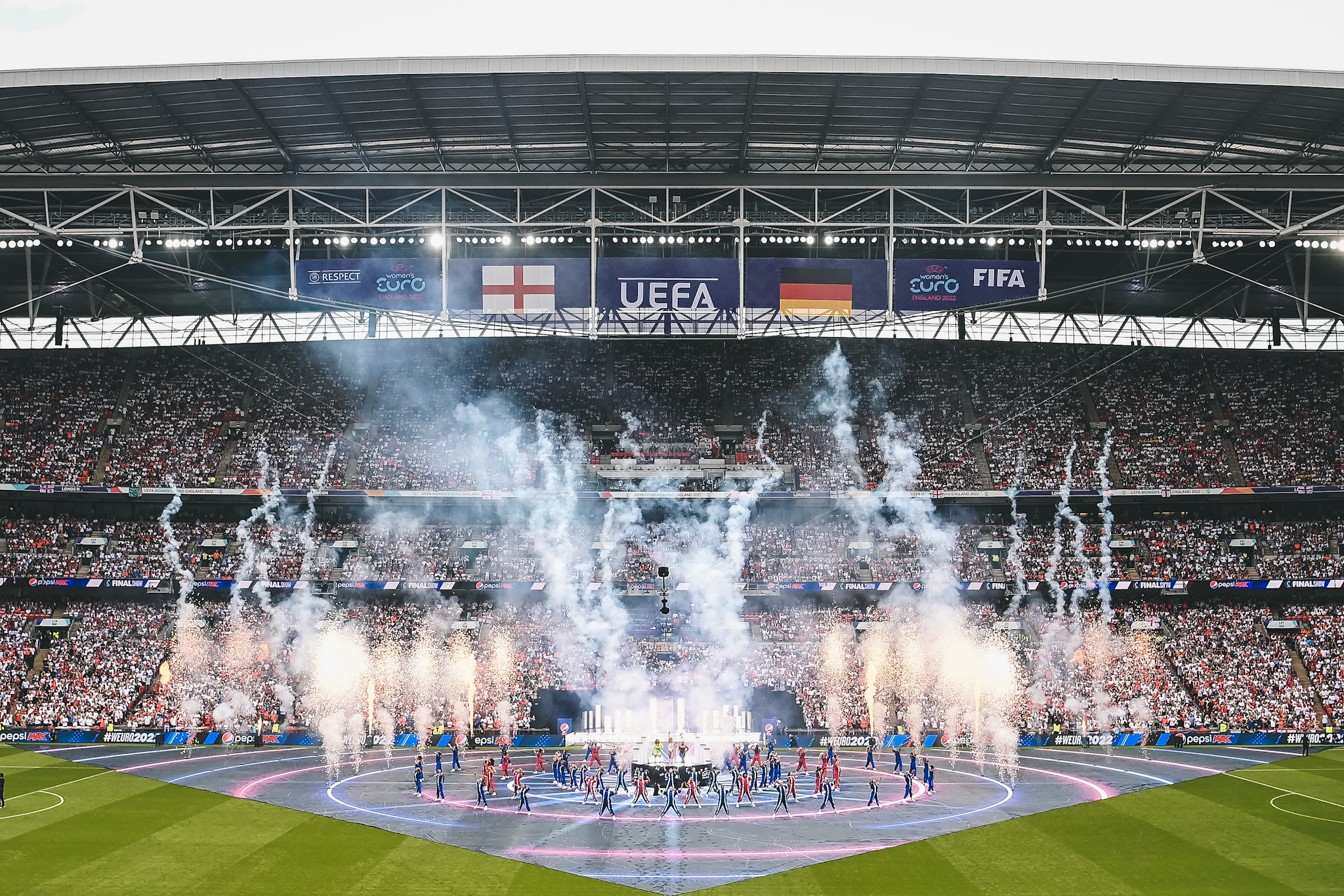
For people who haven’t experienced it, the roar of 87,192 people is not a noise you hear. It is a noise you feel. Deeply, primally. The roar at kickoff rose into the sky like a clarion call…a message to anyone who had ever used the phrase “no one cares”. It rolled over those voices like a wave. We care. We care a hell of a lot. And the volume has rarely dropped since. Duelling chants of “England!” and “Deutschland!”. Flags waved like weapons.
Tackles have flown in, with Germany, particularly the unholy offspring of a tornado and a Rottweiler that is Lena Oberdorf, singlehandedly on a mission to leave their mark on everything and everyone in a white shirt.
Mary Earps and Merle Frohms have been almost unbeatable. Lauren Hemp and Beth Mead have teased, tormented and tricked but the German defence, led by the colossus that is Marina Hegering have stopped them. Felicitas Rauch has made the English wingers curse their luck time and again. Millie Bright and Leah Williamson have driven their teammates forward to crash against a German wall while Lea Schuller, in for the extremely-late-game-withdrawal of the feared Alex Popp, has played like a battering ram, sometimes literally when running in on Mary Earps.
Saxons and Viking warriors who walked across the ground these modern-day Valkyries are now playing on believed that to ensure immortality, you needed to do deeds in battle worthy of the gods attention, and those deeds needed to be acclaimed and shouted to the heavens so the deities could see them and know the greatness and bravery of those below. In front of us, two teams representing former Saxon heartlands have gone into battle. And “gone into battle” is a fair description. No quarter has been asked or given. As they have performed their heroic deeds, each in their own way, the crowd has acclaimed them in a voice to shake the heavens. One to wake the deepest-sleeping Valkyrie or raven and bring them, bleary-eyed, to hover over Wembley and wonder what mighty armies fought below.
Every player on the pitch has in their own way earned the eye of the old gods and their Valkyries a hundred times over, as well as the tens of millions watching at home.
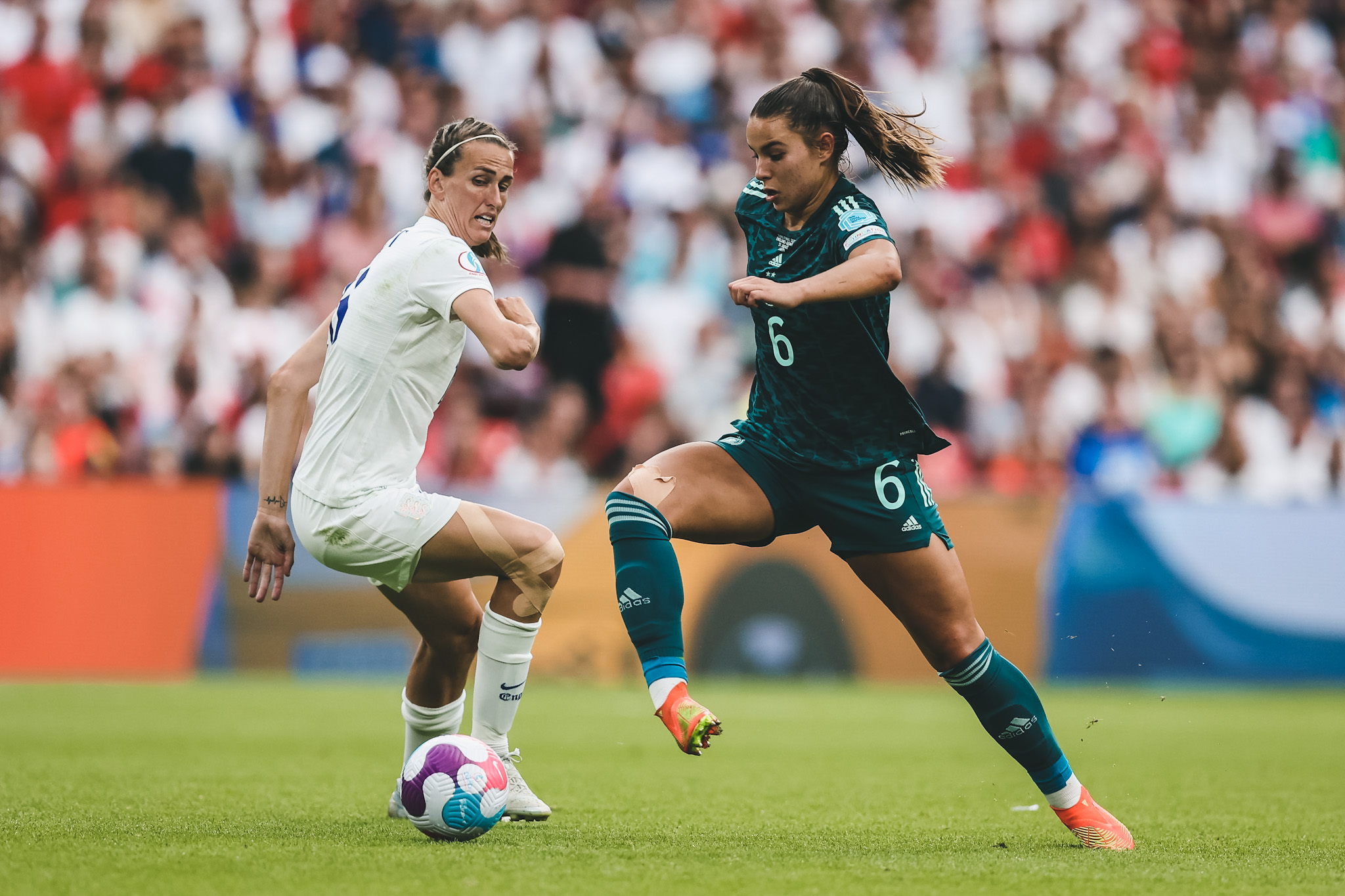
Hope has come and gone almost as regularly as Hemp and Mead have switched wings. The pendulum has swung back and forth. The first half is Germany’s. They are faster and stronger, and their physical game causes an undercurrent of anger and needle in the crowd, like a low rumble of thunder.
The second sees Sarina Wiegman work tactical alchemy and England respond, but the whole game has felt largely poised in that moment between the thunder and the lightning, where the flash has been and gone and the world holds its breath waiting for the storm to be unleashed. Storm clouds hang low over the Arch, but they have merely threatened to rain on England’s parade so far.
Hope reaches its highest in the moments when Ella Toone, on in her super sub role along with Alessia Russo, races onto an exquisite through-ball from Keira Walsh in the 61st minute and, like a thunder goddess of old, uses a hammer blow of a lob to unleash a storm of noise from 85,000 throats. A noise that physically hits you. A noise in which joy and longing are mixed and nobody is quite sure how much of each.
But the Germans, as Germans do, simply roll with the punch. Lena Magull has played like one of the spinners of fate themselves, like a steel hand in a velvet glove as she first crashes a thunderous strike against the post and then weaves the threads of time and space around her with 15 minutes to go, along with her fellow Wyrd Sisters Sydney Lohmann and Tabea Wassmuth, to punish the English hubris of chanting “it’s coming home” so early with a truly exquisite team goal. As she races towards the heaving forest of black, red and gold low down in the corner behind Mary Earps’ goal after scoring, the cheering of the German fans echoes through a suddenly-silent Wembley like the laughter of demons in a deserted cathedral.
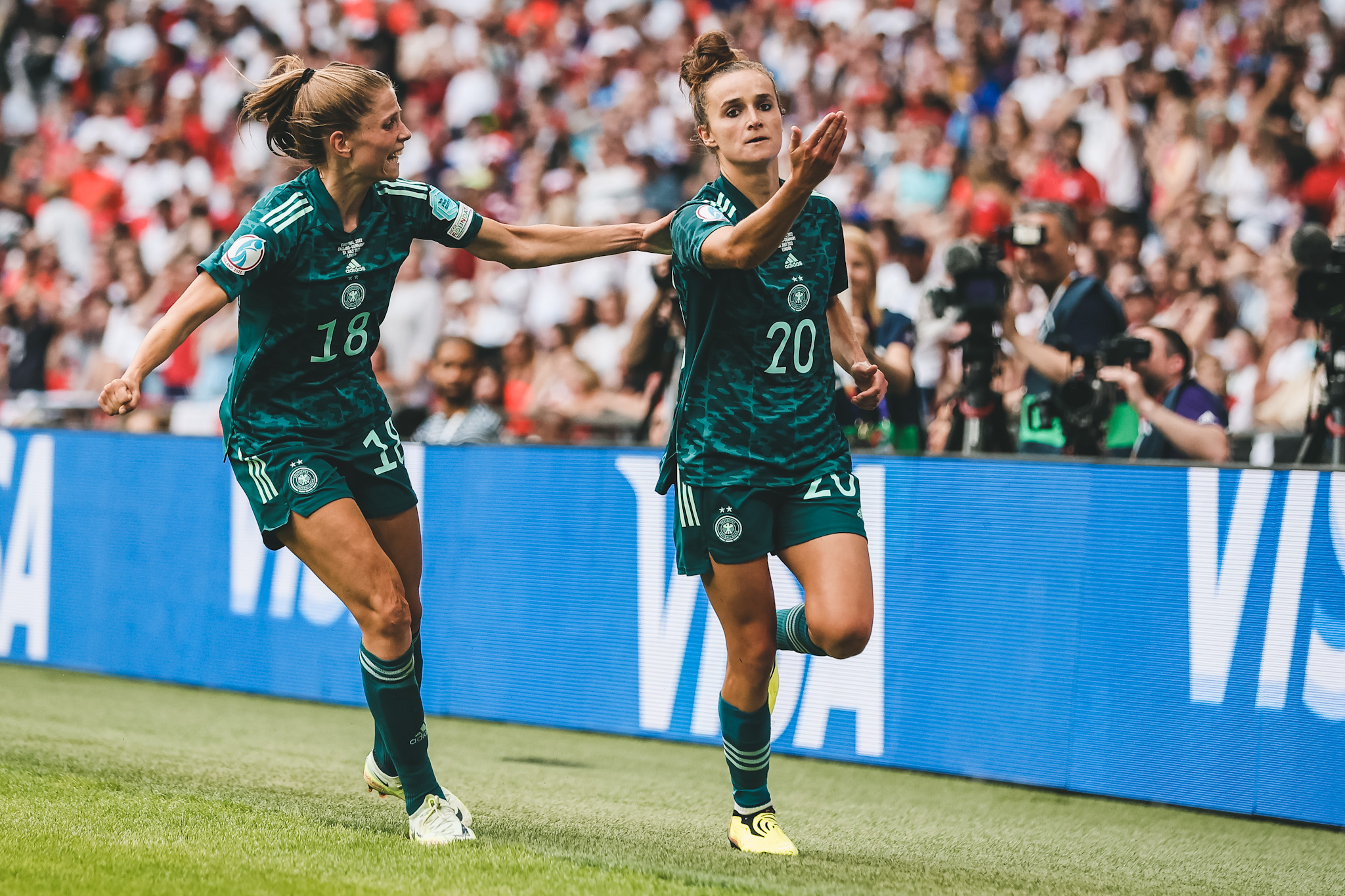
And then, time ticks inexorably on, to where we are now. My partner cries when Germany equalise because, as the song says, “we’ve seen this all before” and despite being Northern Irish she knows how much this means to me, to the Lionesses, to women’s football, to history. But here we are. Through ninety minutes of exquisite hell, England and Germany are level. Once again, an England-Germany final at Wembley will go to extra time, 56 years and two weeks after the last one. As it begins, penalties, like the clouds, loom over Wembley and in the minds of everyone watching, like the spectre at Macbeth’s feast, Out, damned spots.
CHAPTER 4 – KELLY’S HEROINE
Now, afterwards, looking back after an extra time where I had barely moved and at one point my partner asked if I was OK because I hadn’t said anything or responded to her for several minutes, I remember everything before it. I remember the corner being won, and looking up at the screen as Felicitas Rauch jogged back into her position after conceding it. I remember watching Millie Bright line up for another charge into the mixer and wondering if this was the one she got on the end of. I remember, as the white and green shirts jostled, and the crowd roared, and the heat hung over Wembley, and the sweat dripped into my eyes, and someone nearby yelled “THIS TIME, GIRLS!” and Lauren Hemp walked over to take the kick and Lucy Bronze appeared on the big screen adjusting her headband like a ritual with eyes full of fire staring into a future only she could see, looking up and seeing the arch, like a rainbow bridge over this football Valhalla, as spots of rain threatened to fall.
And I remember praying, like I only ever have once before at a football match as Mollie Green stepped up to take a free kick heard around the world for Coventry United. I used the same words then, too. “Please. Whatever is up there. Listen”.
And then I remember the thump of Hemp’s left boot, and the ball arcing small and white against the massed colours of the crowd behind it, and Lucy Bronze flying from nowhere, and the ball ricocheting, and rising to my feet with 87,000 others, and holding my breath, and the small, blonde figure of Chloe Kelly swinging her leg and somehow not falling, and Merle Frohms frozen, and time slowing down as Kelly jabbed out her right leg, lunging, reaching. I remember seeing the ball roll oh so slowly over the line.
And then, I remember nothing except the noise. Even as Chloe Kelly raced away, and the world saw her spin her jersey like she would take off and fly underneath it, and my partner yelled “She’s taken her shirt off” still, the overwhelming memory is not the sights, but the sound.
It rolled like an avalanche over Wembley. It was the audio equivalent of a whiteout. A scream of victory so primal and joyful that if you bottled it, you could conquer worlds. Unlike us mere mortals, it did not care about goalkeeping criticisms, or discussions about positioning, or even VAR. It just was.
It was a roar for every girl who’d ever been denied playing through the FA ban, whether directly at the time like Dick, Kerr Ladies, or through societal prejudice since. For every man who’d been told “you like women’s football? Really?”
It was a roar for every Lioness who has ever worn an England shirt, even those the FA has seemingly forgotten, for every Lioness wearing one on this day, and every young girl who will ever pull on a football shirt.
It was a roar for Lily Parr & Bella Reay, Sylvia Gore and Carol Thomas, Gill Coulthard and Hope Powell, Sue Smith and Kelly Smith, Lucy Ward, Rachel Yankey, Karen Carney, and Steph Houghton.
It was a roar to tell the world “football is her game, too”.
Chloe Kelly’s foot may have been the one that made contact, but it was thousands of feet – those of every single woman who had paved the way to get here, every heroine immortalised in a sepia picture who had kicked a ball with football in their veins and defiance in their hearts when society and the FA told them it was unsuitable, every girl who’d dreamed during those long 50 years, and every player who had sweated and saved and fought and clawed for their right to play and in their own way walked the path that led to this moment – that forced it over the line.
And it was beautiful.
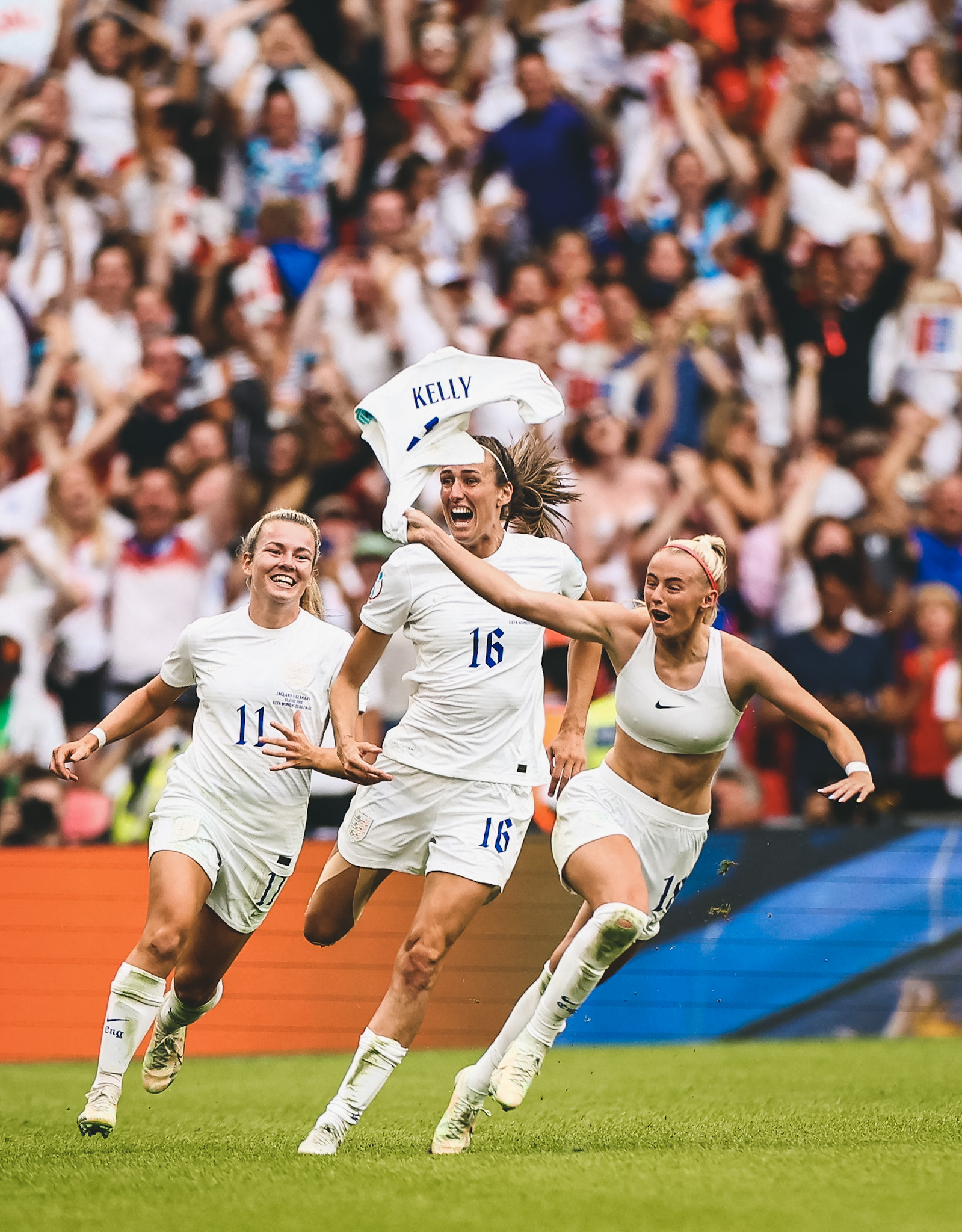
CHAPTER 5: HOMECOMING
I counted the seconds. All 420 of them. As Chloe Kelly battled to hold the ball in the corner, and Lessi Russo fired in a shot that Merle Frohms tipped over the bar, and throw-in after throw-in took place, I counted. With 30 seconds left someone started up “it’s coming home” and I am ashamed to say in hindsight I screamed, “DON’T SING YET!”. I counted, and I watched the life drain out of the Germans. I thought of what this would mean. What could still be taken away?
And when the final whistle blew, and Chloe Kelly went haring alone into the German half arms wide, and Ella Toone HAMMERED the ball into the sky, the dam finally burst, and I cried. I am not ashamed to admit that. I hugged my partner and I cried.
Then I sang through the tears. Sweet Caroline and Three Lions and Just Can’t Get Enough and “Tooney and Lessi Russo” and “Beth Mead’s On Fire”. And I roared when the trophy was lifted, and I applauded.
And then, I looked up and I saw the evening sun had come out and turned the Arch and half of Wembley the gold of a Lioness’s fur.
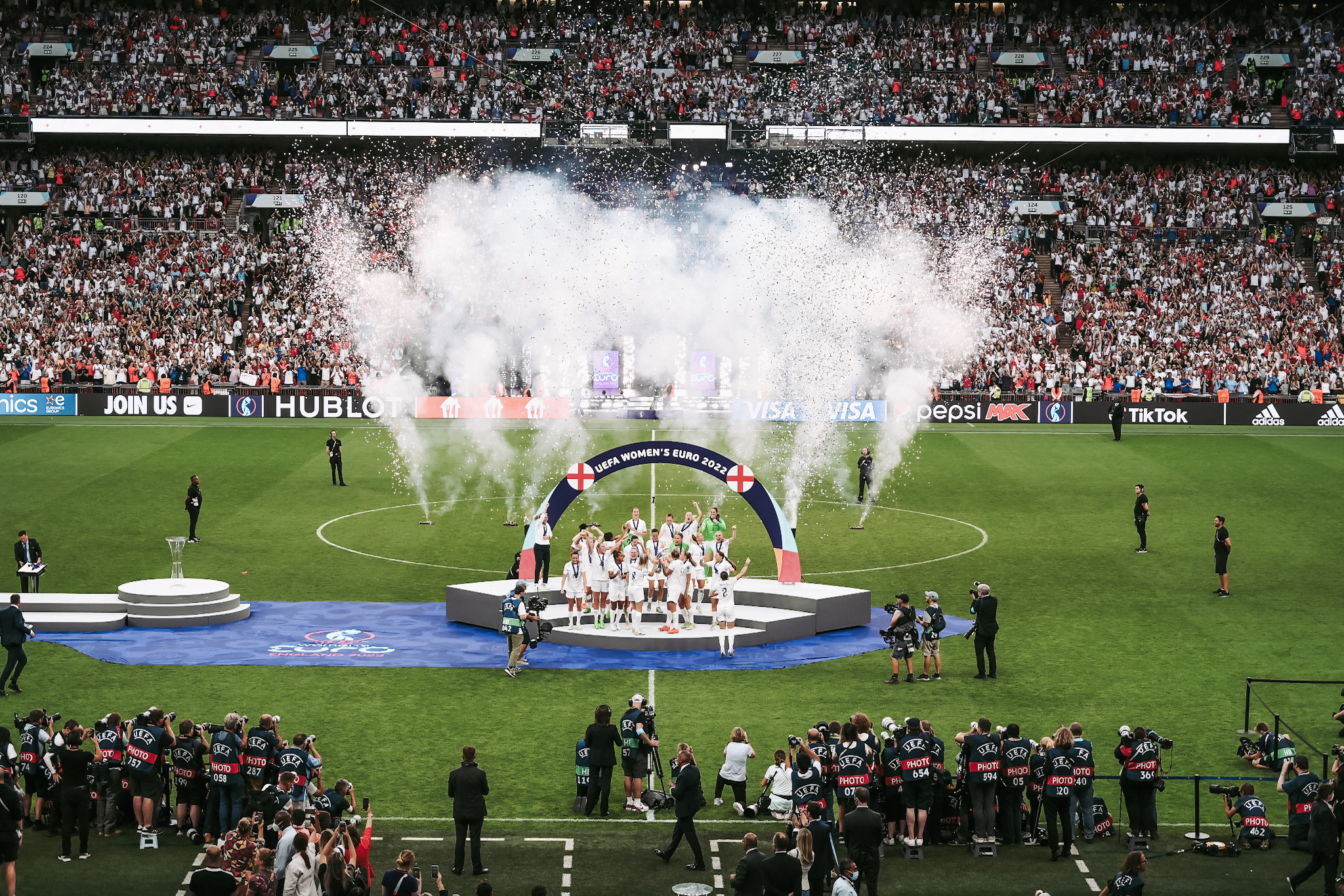
And that was when it sank in. England. Champions of Europe.
There were songs on Wembley Way in the queue to get back into the tube station as the heavenly shades of night fell and Wembley Arch lit up red and white. There was the TFL sign saying “it’s home!” There was Sweet Caroline with strangers on Wembley Park’s platform six, and singing that went from Wembley Park to Kings Cross, stopping at Finchley Park, Baker Street, Great Portland Street and Euston Square.
There was the train ride home, on which this epic was drafted. There was work today, croaky-voiced and still joyful.
And now, still, there is happiness. But there is also resolve.
The domestic football season starts in three weeks. I will be back in the commentary box with my local team, Coventry United, who have their own stories to tell, and some epics I’ve told already.
And now the Lionesses have done their part, our work starts, watching our teams, supporting them whatever level they’re at. Making sure that women’s football takes this gift and runs with it to take off just as it did in the US after the 99 World Cup (which concidentally also had a winning goal that spawned an iconic photo.)
I am proud to be a small part of that.
But for now, we will leave this article where it started – on the train, thundering through the night, with Wembley Arch, shining red and white into the sky, showing women’s football the way back home behind us and a country now ready to welcome her with open arms as the new season begins.
And we will smile. For this is not the end of the story. It is not even the beginning of the end. But it is perhaps the end of the beginning.
#HerGameToo.





